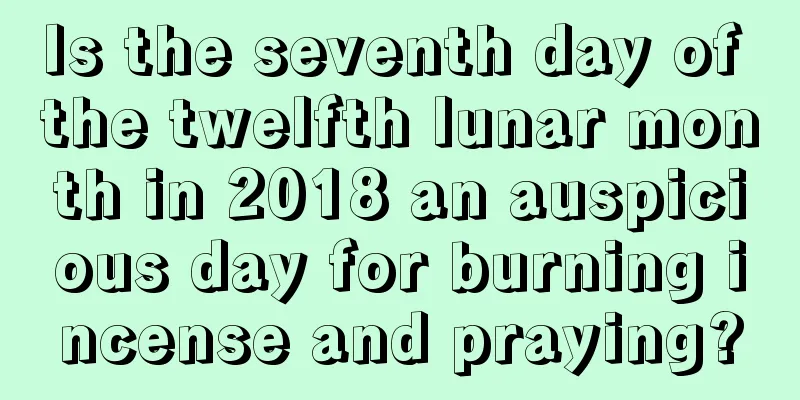What do people eat on the twenty-third day of the twelfth lunar month?

The 23rd day of the twelfth lunar month is also known as Little New Year, which is an important day in the Chinese lunar calendar. So, what do people eat on this day? Let’s find out together with the editor. In the twelfth month of the lunar calendar, the coldest days of winter arrive as expected. Shuimoxiansheng.com presents you with wonderful content for the twelfth month of the lunar calendar in 2018.What do people eat on the 23rd day of the twelfth lunar month?1. During the Kitchen God Festival, people pay attention to making dumplings , which means "sending off with dumplings facing the wind". People in mountainous areas mostly eat cakes and buckwheat noodles. In the southeastern part of Shanxi Province, it is popular to eat fried corn. There is a folk saying that goes, "On the 23rd, don't eat fried corn; on the New Year's Day - eat all of it." 2. There is an old saying about Kitchen God : "On the twenty-third, the sugar melons are sticky and the Kitchen God is going to heaven." Stove sugar is a kind of malt sugar with great viscosity. When it is drawn into a long stick, it is called "Kanto sugar", and when it is drawn into a flat round shape, it is called "sugar melon". In winter, it is placed outside. Because of the cold weather, the sugar melon solidifies and there are tiny bubbles inside. It tastes crispy, sweet and crunchy, with a unique flavor. Real Kanto sugar is extremely hard and cannot be broken even if dropped. It must be chopped with a kitchen knife when eaten. The material is very heavy and fine. The taste is slightly sour, and there is absolutely no honeycomb in the middle. Each piece weighs one, two, or four taels, and the price is also more expensive. There are two types of sugar melons, one with sesame seeds and the other without. They are made with sugar in the shape of a melon or a pumpkin, with a hollow center and a skin less than five centimeters thick. Although they come in different sizes, transactions are still calculated by weight. The large sugar melons can weigh one or two pounds, but they are used as a cover and few people buy them. 3. Rice cakes are on the 23rd day of the twelfth lunar month, commonly known as "Little New Year". People in Wuxuan, Guiping and other places in Guangxi have the custom of making rice cakes. Rice cakes are made of glutinous rice flour as the main ingredient, with peanuts, sesame seeds and sugar as side ingredients. They are put into molds and formed into round shapes, then steamed at high temperature. They have a unique flavor and symbolize "reunion". 4. Fried corn In the southeastern part of Shanxi Province, there is a custom of eating fried corn. There is a folk saying that goes "If you don't eat fried corn on the 23rd, you will eat a lot on the first day of the New Year." People like to stick the fried corn together with maltose and freeze it into large chunks, which taste crispy and sweet. 5. In the western region of Shandong, there is a folk song about sticky cake : “Twenty-three, sticky cake is sticky.” The 23rd day of the 12th lunar month every year is the day when every household steams and eats sticky cakes, which is meant to stick the mouth of the Kitchen God shut so that he will speak good things to the heaven instead of bad things on earth. Sticky cake is made from yellow rice, red dates and other ingredients. It is sweet, chewy and soft in the mouth, and it carries the auspicious meaning of "getting higher year by year". In addition, Hainanese people use coconut as an ingredient to make coconut cakes for consumption and for praying, with the auspicious meaning of "getting higher year by year".What are the customs on the 23rd day of the twelfth lunar month?1. After sweeping the house and performing the Kitchen God Festival, people officially begin preparations for the New Year. Every year, from the 23rd day of the twelfth lunar month to the New Year's Eve, the Chinese people call this period of time "Welcoming Spring Day" or "Dust Sweeping Day". Sweeping the dust is the year-end cleaning, which is called "sweeping the house" in the north and "dusting" in the south. Sweeping the house before the Spring Festival is a traditional custom of the Chinese people. 2. Cut window paper-cuts. The patterns of window paper-cuts include various stories about animals, plants, people, etc., such as magpie climbing on plum tree, peacock playing with peony, lion rolling embroidered ball, three sheep (yang) bringing good luck, two dragons playing with pearls, deer, crane, tung tree and toon (six harmonies in spring), five bats (blessing) holding longevity, rhinoceros looking at the moon, lotus (continuity) and fish (surplus) every year, mandarin ducks playing in water, Liu Hai playing with golden cicada, the two immortals of harmony and unity, etc. 3. Writing Spring Festival couplets After the 23rd day of the twelfth lunar month, every household will write Spring Festival couplets. People believe that couplets must be posted wherever there are gods, on every door, and on every object, so there are the largest number of couplets during the Spring Festival, and their content is the most comprehensive. The couplets before the gods are particularly exquisite, and are mostly words of admiration and blessing. Common ones include couplets for the gods of heaven and earth: "Heaven's grace is as deep as the sea, and the earth's virtue is as heavy as a mountain"; couplets for the god of land: "White jade grows in the soil, and gold comes out of the ground"; couplets for the god of wealth: "The master of wealth in heaven, the god of fortune and luck on earth"; couplets for the god of well: "The well can connect to the four seas, and the home can reach the three rivers." The Spring Festival couplets hanging in granaries, animal pens and other places express warm congratulations and hopes. 4. After the 23rd day of the lunar year , people believe that the gods have gone to heaven and there are no taboos. There is no need to choose a date to marry a wife or a daughter, which is called a hasty marriage. There is a saying in the folk song, "At the end of the year, villages are busy with weddings, and Yichun sends invitations to celebrate the spring. Sisters whisper to each other in front of the lamp, and this year's staying up late is the bridal chamber." |
Recommend
Is January 24th of the lunar calendar in 2019 a good day for a funeral?
As the saying goes, "Once dead, you can't...
Is the Big Snow solar term of 2019 suitable for house decoration? Will there be heavy snow in the Big Snow solar term of 2019?
Introduction: You must choose an auspicious day fo...
Is it not suitable to get married or engaged in the first month of the lunar year? Recommended auspicious dates for marriage during the 2020 Spring Festival!
Introduction: There are many things to pay attenti...
Where is the direction of the God of Happiness on December 30th of the lunar calendar in 2018?
The arrival of the twelfth month of the lunar cal...
Is it good for a girl to be born on New Year’s Eve 2019? What zodiac sign were you born today?
Is it good for a girl to be born on New Year’s Eve...
What is the fate of a tiger boy born on the eighth day of the eighth lunar month in 2022?
The birth of every child is the most precious gift...
Is it a good idea to open on the first day of the seventh lunar month in 2019, Army Day? What year is the Army's anniversary in 2019?
Introduction: Generally, you have to choose an aus...
Is February 17, 2020, the 24th day of the first lunar month, an auspicious day for signing contracts, seeking wealth, and opening a business?
To choose an auspicious day for a certain event, y...
Can I hold a wedding on March 15 (April 7), 2020? Is it an auspicious day for marriage?
Marriage is a major event in life. Can we hold a ...
Is it a good idea to get married on the eighth day of the seventh lunar month in 2019?
Choosing an auspicious wedding day is also a very...
Is it a good idea to get a haircut on April 14, 2020? Do I need to choose a day to get a haircut?
Haircut only refers to the first time a newborn ba...
Is it appropriate to pray on the 13th day of the eighth lunar month in 2019? What should we pay attention to when praying?
Is it appropriate to pray on the 13th day of the e...
Is it a good time to travel on February 29th of the lunar calendar in 2022? Is it an auspicious day to travel?
If you want your travel to be smoother and more co...
What is the date and month of the 13th day of the sixth lunar month in 2020? What day is it?
The lotus leaf skirt is cut in one color, with hi...
Names for babies born in Grain in Ear, detailed explanation of baby names based on the five elements in Grain in Ear
Grain in Ear is the third solar term we encounter ...









